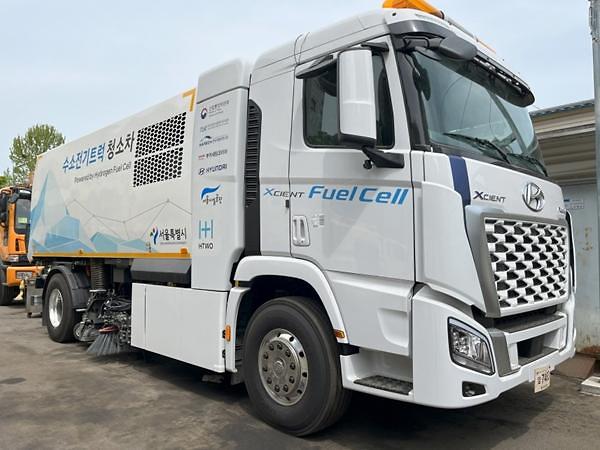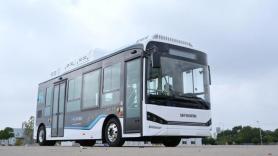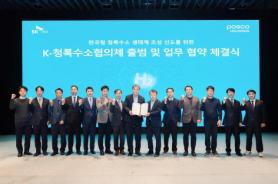
[Courtesy of the Seoul Facilities Corporation]
According to data released by Seoul Facilities Corporation, hydrogen fuel cell-based cleaning vehicles are effective in removing dust with a diameter of 10 micrometers or less from the surface of roads. The accumulated dust often scatters again when vehicles pass by.
The SFC said in a statement that the demonstration would start on May 4 using a Hyundai Xcient truck to clean roads. The heavy-duty truck is equipped with a cargo box weighing six tons and a water tank with a total capacity of 2,100 liters. The demonstration is part of the Korea Automotive Technology Institute's project that began in April 2020 to test large-sized hydrogen vehicles. South Korea's industry ministry is providing financial support for the 44-month project designed to improve the performance of hydrogen trucks and develop related technologies.
The adoption of hydrogen vehicles is gaining momentum in South Korea to curb carbon emissions and push for Renewable Energy 100 (RE100), an initiative seeking to source 100 percent of electricity consumption from renewables and accelerate change towards zero-carbon grids. The capital city aims to operate some 1,000 hydrogens and build 11 hydrogen fueling stations by 2025. The Ministry of Environment unveiled its scheme to adopt a total of 624 hydrogen fuel cell buses in two southern port cities -- Busan and Ulsan -- and South Gyeongsang Province by 2025.
Despite hydrogen cars' environmentally-friendly features, hydrogen cars have been shunned by South Korean consumers because of a lack of charging infrastructure and a general perception that such stations could explode.
Copyright ⓒ Aju Press All rights reserved.




